
Caroline McDonald-Harker
Director
Caroline McDonald-Harker, PhD, is a Sociologist and Associate Professor in the Department of Sociology & Anthropology at Mount Royal University. Prior to her appointment as the Director, she was a Faculty Affiliate with the CCDR for six years (2014 to 2020). Dr. McDonald-Harker obtained a Bachelor of Arts Honours (BAH) Degree in Sociology from Queen’s University, a Master of Arts (MA) Degree in Sociology from McGill University, and a Doctorate (PhD) in Sociology from the University of Alberta. Her areas of expertise include families; parenthood/parenting; children and youth; trauma and resilience; mental health; and gender. Her disaster research focuses on individual, family and community resilience post-disaster; the psychosocial impacts of disasters; and disaster preparedness, response, and recovery. Over the last five years, she has conducted six large-scale disaster studies funded by major external research grants totalling 1.9 million dollars from funders including the Social Sciences and Humanities Research Council (SSHRC), the Canadian Institutes of Health Research (CIHR), and Alberta Innovates (AI). She has collaborated on studies with academic researchers from 4 Canadian universities, and 25 provincial and national community organizations. Her work has appeared in leading scholarly journals including Social Currents, Sociological Inquiry, International Journal of Social Work, The International Journal of Sport and Society, BMC Psychiatry, and Frontiers in Psychiatry.
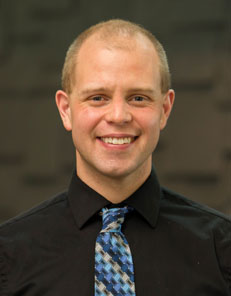
Timothy J. Haney
Faculty Affiliate
Timothy J. Haney, PhD, is the Past Director of the CCDR (2014 to 2019). He is a Professor of Sociology and currently holds the inaugural Board of Governors Research Chair in Resilience & Sustainability at Mount Royal University. Dr. Haney’s teaching and research interests include the sociology of disaster, environmental sociology, urban sociology, and quantitative methods. His research looks at how families, neighbourhoods, and communities prepare for and respond to catastrophic events like hurricanes, floods, wildfires, and oil spills. His articles have looked at how disaster-affected residents perceive risk and experience uncertainty, how they make evacuation decisions, how disasters affect their environmental views and practices, how the social networks of affected residents change over the course of evacuation and displacement, as well as establishing best-practices for disaster research methods. His work has appeared in many leading sociology journals including Environmental Sociology, Social Science Research, The Sociological Quarterly, the Canadian Review of Sociology, and many others. His research has also attracted funding from the Social Sciences and Humanities Research Council (SSHRC) of Canada, the U.S. Department of Housing and Urban Development (HUD), and others.
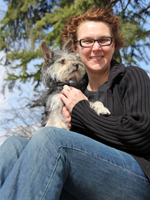
Kimberly Williams
Faculty Affiliate
Kimberly A. Williams is an associate professor and program coordinator of Women’s & Gender Studies at Mount Royal. Kim’s teaching and research areas are in feminist and queer theories, critical masculinity studies, feminist research methods, sexuality studies, and global women’s issues. Her book, Imagining Russia (2012) was awarded the State University of New York Press’s prestigious First Book Prize in Women’s & Gender Studies. In her time off-campus, she hangs out with her mini mystery mutt, Cricket, and sings alto in One Voice Chorus.
Kim comes to the Centre for Community Disaster Research having made two trips to post-Katrina New Orleans with CCDR Director Tim Haney’s sociology field school. Her current CCDR-funded project, Evacuating Family Pets from the Fort McMurray Wildfire, examines the processes and politics and identifies the people involved in evacuating pets from the Fort McMurray wildfire in May 2016.

Brian Guthrie
Faculty Affiliate
Brian Guthrie has extensive experience in disaster mental health/mass emergencies as a cognitive-behavioural therapist treating individuals who have experienced trauma and/or have been diagnosed with Post Traumatic Stress Disorder (PTSD). In addition, he is a disaster mental health therapist appointed to Canada's Psychosocial Emergency Response team (2002). This team is mandated under the Federal government to respond to disaster/mass emergencies impacting Canadian Citizens. He has an advanced certificate in Critical Incident Stress Management, training in Psychological First Aide and training in Critical Incident Command Centre (ICS 100/200).
He recently completed research on the Psychosocial Emergency Response Team’s mobilization to the 2010 Winter Olympics. The outcome of the study is published as Psychosocial Emergency Response: Team perception of preparedness and response pre and post mobilization to the 2010 Winter Olympics. International Journal of Mental Health, vol. 41, no. 4, Winter 2012-13. This study was presented at the 3rd Australasian Mental Health and Psychosocial Disasters Conference 2011: Responding to the Human Social Impact. Brisbane, Australia. September 28 and 29, 2011. In addition, he is a reviewer for the International Journal of Mental Health and the Australasian Journal of Disaster and Trauma Studies.
His current research involves being a member of the expert working group for the Simtec Project at the Justice Institute of British Columbia. Simtec is conducting research to develop protocols for disaster response by first responders and community Disaster Response organizations. In Feb 2012 he was the Trauma/Mental Health Therapist on a medical mission to Citie de Soliel, Haiti where he provided trauma counselling to Haiti earthquake survivors. As an outcome of that experience, he is evolving a model of Single Session Therapy (SST) to be applied to Disaster/Mass Emergency events.

Douglas Murdoch
Faculty Affiliate
Douglas Murdoch, PhD, was employed by Alberta Health Services for 27 years as a psychologist in the child and adolescent sector. His work was primarily in the area of Mental Health. He also worked in the areas of Health Psychology (Inpatients, Neurology and Weight Control) and Child Abuse. His clinical interests have been in assessment and diagnosis, particularly children and adolescents with complex and unusual presentations. He was the primary author of Basic Behaviour Therapy (1991). Previous areas of research have included: Alcohol and Aggression; Prescription Drug Use in Women; Weight Control in Children; Social Skills Training; Parent Training Programs; and the Effects of Household Break and Enter on Children and the Burden of Care experienced by parents of a child with an emotional, behavioural or psychiatric disorder. His current research focuses on training in mental health knowledge among various healthcare-related professions and on the teaching of psychology at the undergraduate level, especially methods of assessment. He received a Teaching Excellence Award from the Mount Royal Student Association in his first year of full time teaching at Mount Royal University. He is also an Adjunct Professor at the University of Calgary where he has taught since 1991.
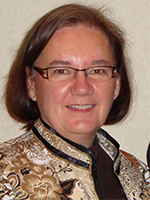
Cathy Carter-Snell
Faculty Affiliate
Catherine Carter-Snell, PhD, is the Nurse Education Scholar and an Associate Professor with the School of Nursing and Midwifery. Her background is Emergency and forensic nursing, working with victims of trauma, assault and disaster. The focus of her research is on the prevention of violence and early effective interventions if violence or trauma occurs to prevent negative consequences. One example is interventions to minimize post-traumatic stress disorder after violence. Dr. Carter-Snell was working in Edmonton Emergency in the immediate aftermath of the 1987 tornado and with evacuation centres in Calgary after the 2013 flood. She has also been part of regional disaster planning in her previous roles as an Emergency nurse manager, coordinator and Emergency nurse educator.
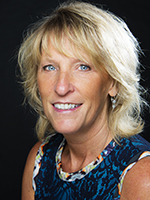
Pat Kostouros
Faculty Affiliate
Patricia Kostouros, PhD, is a professor in the Department of Child Studies and Social Work at Mount Royal University. Patricia’s research interests include Vicarious Trauma and Compassion Fatigue, the topic of her Master’s thesis, and a PhD thesis on Depictions of Suffering in the post-secondary human service classroom. Patricia holds non-competitive research grants as a collaborative partner in research related to Intimate Partner Violence on post-secondary campuses. Patricia provides Critical Incident Debriefing for a youth-serving agency in Calgary and most of her career has been related to crisis management.
Patricia has developed and taught courses related to children’s mental health for the Children’s Mental Health Certificate at Mount Royal University and was part of a children’s mental health team as a practitioner. Patricia is a co-chair of the post-secondary student mental health initiative with the Canadian Association of College and University Student Services.
Patricia is a practicing registered psychologist and approved provisional supervisor. Patricia has expertise in the areas of Post-Traumatic Stress Disorder, Depression, Anxiety and Intimate Partner Violence. She also assists practitioners by providing workshops related to Vicarious Trauma, Compassion Fatigue and self-care. Prior to her work in academia, Patricia managed a youth shelter, a women’s shelter, and was the Executive Director of a residence for women with a trauma history and a dual diagnosis. She has been a board member for a domestic violence-serving agency and presently acts as the Vice-President South for the Child and Youth Care Association of Alberta.

Sheridan McVean
Faculty Affiliate
Sheridan McVean teaches Issues Management, Risk and Crisis Communication, Government Public Relations and is an Academic Supervisor in the Public Relations program, Faculty of Communication Studies, at Mount Royal University. He is also an Associate Faculty member at Royal Roads University in Victoria, British Columbia.
Sheridan has been teaching post-secondary students and consulting for corporations, governments and nonprofit organizations for more than 30 years. His consulting work involves disaster preparedness, emergency response, risk communication, and crisis communications. His industry experience includes energy, utilities, food, consumer products, law, accounting, nonprofit and government sectors. He has Canadian experience in the Incident Command System and has been involved in actual as well as in planning and managing simulations of crisis, disaster, and emergency response situations.
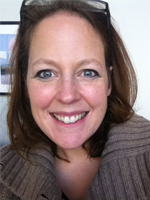
Janet Miller
Faculty Affiliate
Janet Miller, PhD, is a registered psychologist, accomplished public speaker and associate professor at Mount Royal University. She is currently the Chair of Student Counselling and is proud to work along a professional team devoted to student development and success. Janet is associated with the Centre for Suicide Prevention as a certified trainer for their Applied Suicide Intervention Skills Training program (ASIST) and is currently the Editor of the Canadian Psychological Association's counselling section newsletter (Kaleidoscope). Janet's therapeutic practice draws from existential, cognitive and emotion-centred practices to help people develop greater self-awareness, reach their goals, work through times of distress and thrive despite the demands of life. This work has lead to an interest in recovery post-disaster and thus her connection with, and support of, the CCDR.
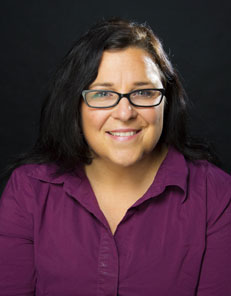
Sonya Jakubec
Faculty Affiliate
Sonya L. Jakubec, PhD, is a professor at Mount Royal University’s School of Nursing and Midwifery. She brings experience and training in Critical Incidence Stress Debriefing, emergency and community mental health nursing, as well as leadership and program development in mental health care for refugees and displaced people.
Her interests at the Centre relate to community health, mental health, services and human resources development, and focus on individual and community resiliency (particularly 'social pathways' to mental health). Sonya’s program support expertise includes a variety of training as well as evaluation and research activities (including intervention and mixed method studies, qualitative studies — particularly with interview and focus group analysis, knowledge synthesis studies, as well as critical-feminist institutional analysis). Her current work in the area includes clinical and classroom instruction in crisis/disaster mental health, knowledge synthesis research about sexual/relationship violence and community/service responses, as well as training and textbook resource development about crisis/emergency/disaster mental health nursing and crisis and disaster management and community health care. She has been a long time adviser and reviewer for the journal “Intervention: The International Journal for Mental Health, Psychosocial Work and Counseling in Areas of Armed Conflict.”
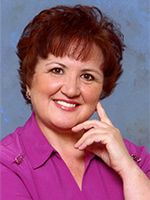
Sandra L. Braun
Faculty Affiliate
Sandra Braun, PhD, teaches Crisis Communication, Media History, and Communication Theory in the public relations program, Faculty of Communication Studies at Mount Royal University. One of her research interests includes theoretical approaches to crisis communication. Her paper, "A Blended Approach to Cosmological Crisis: A Theoretical Analysis of Communication Efforts by the Canadian Tourism Commission Post 9/11" was nominated as a top paper at the International Communication Association annual conference in Dresden in 2006. She also presented "Comparison/Contrast of XL Foods and Maple Leaf Crisis Management" at the Canadian Communication Association in 2013. She holds a PhD from the University of Alabama and a Masters in Mass Communication from the University of Florida.
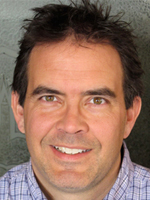
Bill Bunn
Faculty Affiliate
Bill Bunn is new to the discipline and practice of disaster communications. During the summer of 2014, he worked as a member of a disaster relief team in Melville, Saskatchewan with Samaritan’s Purse. Saskatchewan and Manitoba were hit by as much as 200 mm of rain in late June and early July 2014 causing widespread flooding. Samaritan Purse was invited to set up its relief operations centre in Melville, Saskatchewan. Bill teaches in the Department of English, Languages, and Cultures and the School of Communication Studies at Mount Royal University. Bill is also co-author of the recent article "Nuclear Avenue: 'Cyclonic Development', Abandonment, and Relations in Uranium City, Canada".
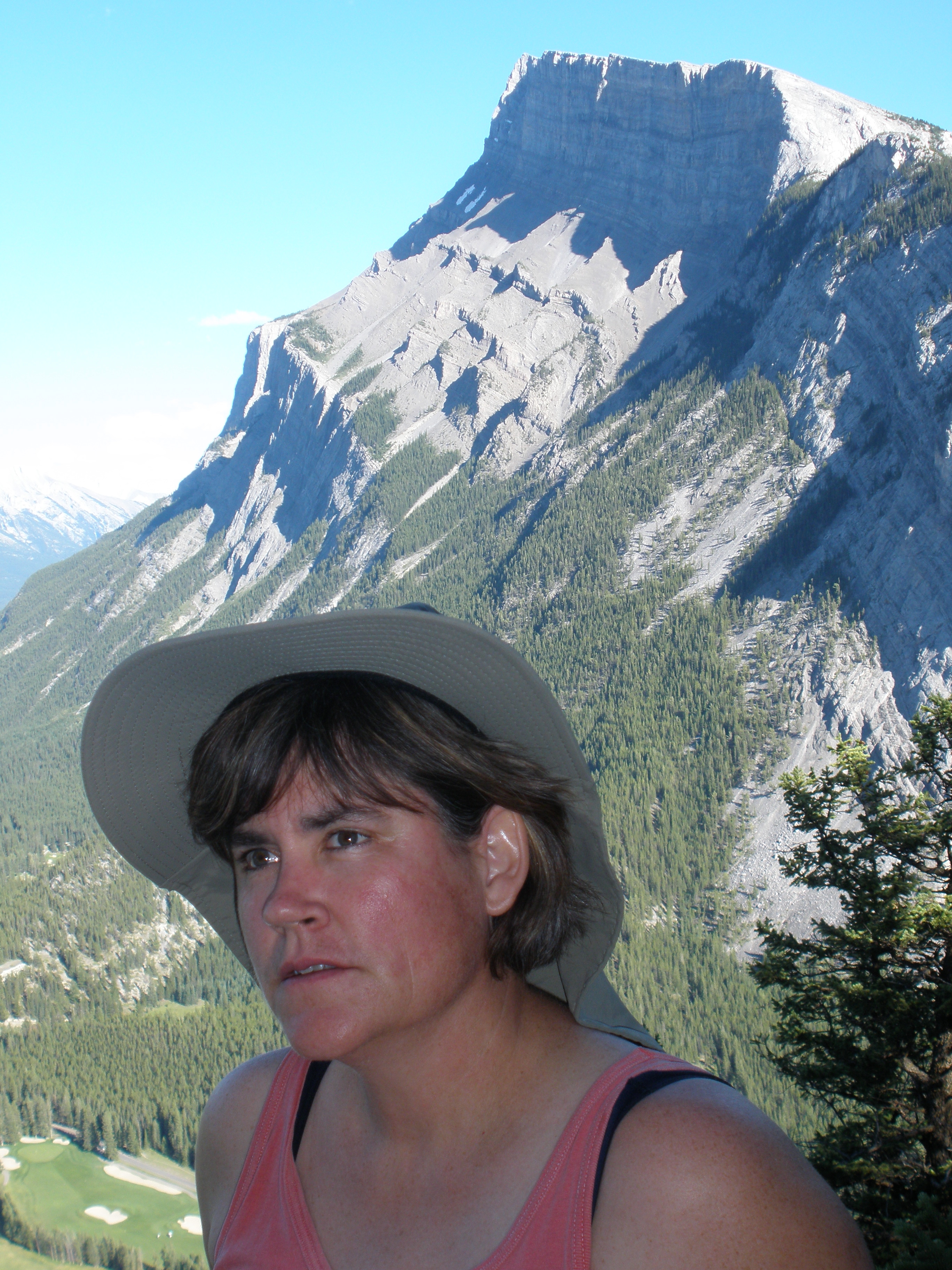
Katherine Boggs
Faculty Affiliate
Katherine Boggs, PhD, is an associate professor in the Earth and Environmental Sciences Department at Mount Royal University.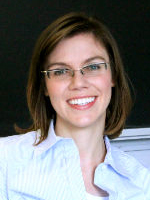
Kristen Barber
Faculty Affiliate
Kristen Barber, PhD, is an assistant professor of Sociology at Southern Illinois University, Carbondale. Her research focuses on gender and social inequalities in a postfeminist era. Having lived in New Orleans during Hurricane Katrina, she began asking questions about how gender shapes people’s options during and recovery after environmental and technological disasters. She is particularly interested in the ways gender analysis often comes second to race and class in research and how women have particular needs that are not met in disaster preparedness and mitigation plans and policies. Barber’s work appears in the journals, Critical Sociology, Sociological Spectrum, and Race, Gender & Class. She gave the 2015 Fall Lecture to the CCDR, titled: “Were the Women Washed Away?: The Gender of Vulnerability and Resilience in Disaster.”
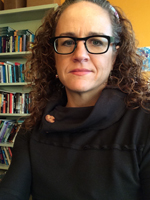
Debra Davidson
Faculty Affiliate
Dr. Debra J. Davidson is a Professor of Environmental Sociology in the Department of Resource Economics and Environmental Sociology at the University of Alberta. Her primary areas of teach and research involve intersections between climate change, energy and food systems, socio; responses to environmental degradation, and sustainability transitions. Recent papers have been published in Science, Global Environmental Change, Food Policy, Agriculture and Human Values, and British Journal of Sociology and she is co-author of Challenging Legitimacy at the Precipice of Energy Calamity with Mike Gismondi (Springer, 2011). She served as lead author for the 5th Assessment Report of the Intergovernmental Panel for Climate Change, and is currently Director of Prairie Urban Farm.
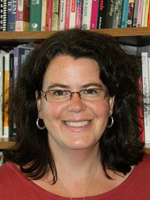
Julie Drolet
Faculty Affiliate
Julie Drolet is an associate professor in the Faculty of Social Work at the University of Calgary’s Central and Northern Alberta Region (CNAR) campus in Edmonton. She is the principal investigator of a study titled Rebuilding Lives Post-Disaster: Innovative Community Practices for Sustainable Development funded by an SSHRC partnership development grant (2012–15). She has expertise in social work and disasters, community development, and social work research methods. She is also a disaster management volunteer with the Canadian Red Cross. She has served as the principal investigator of four SSHRC funded research projects on disasters, climate change, and sustainable development, and has received funding from CIHR on health and post-disaster recovery. Her research program is supported by infrastructure awarded by the Canadian Foundation for Innovation (CFI). In addition, she has extensive practice experience in the field of international social work. She has published extensively in international social work and social development with a particular focus on gender and development, climate change and disasters, international social protection initiatives, International and Canadian field education, qualitative research, and international migration and Canadian immigration. Her current interests focus on social work and disasters, adaptive climate change, relational well-being, and immigrant settlement and integration in smaller communities. She is a member of the Addiction and Mental Health Strategic Clinical Network (SCN) and O’Brien Institute for Public Health that aims to address Albertans' mental health needs and work to improve health-care systems.
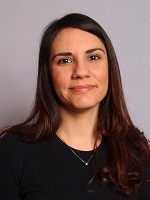
Cindy Ermus
Faculty Affiliate
Cindy Ermus, PhD, (Twitter: @CindyErmus) is an assistant professor of History at the University of Lethbridge, where she teaches courses on early modern Europe, the history of disasters, and the Age of Revolutions. She specializes in and has published various studies on, the history of disaster and crisis (including disease outbreaks and revolutions). She is particularly concerned with their long term effects, as well as shifts in disaster management, and in our understandings of disaster, over time. She is also interested in the effects of climate change, and what she calls the "new disaster realities" associated with human-caused global warming and rising seas. She is the editor of a volume titled, Environmental Disaster in the Gulf South: Two Centuries of Catastrophe, Risk and Resilience (LSU Press, 2018), which was featured in The Atlantic and Al Jazeera's NewsHour. Her current book project is a transnational study of the Plague of Provence of 1720 (the "Great Plague of Marseille"), one of the last outbreaks of plague in Western Europe. By tracing responses to the threat of infection throughout a network of major eighteenth-century port cities, she explores the ways in which the crisis influenced society, politics and commerce beyond France, in neighbouring regions, and in the Atlantic and Pacific colonies. She is also co-founder, executive editor and contributor at www.AgeofRevolutions.com (on Twitter @HistoriaBLOG). She became interested in the study of disasters while growing up in Miami, Florida, where every year was broken up by the cycle of hurricane seasons.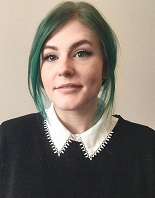
Daran Gray-Scholz
Research Associate
Daran Gray-Scholz is a recent graduate of the Sociology program at Mount Royal University and has been performing research for the CCDR working on the SSHRC-funded Southern Alberta Flood Project since 2017. While a student of Professor Tim Haney's Disaster Sociology class, she was given the opportunity to prepare the case study "Alternative learning models and experience in small-scale disasters: Findings from Calgary's 2014 snowstorm 'Snowtember'", including in-depth analysis and recommendations for the Calgary Emergency Management Agency.During her time with the CCDR, topics of research that Daran has been focused on include but are not limited to, disrupted ontological security post-disaster, place-attachment, and risk perception. As a result of her work on the Southern Alberta Flood Project, Daran has co-authored several works — "Flooding and the New Normal: What is the Role of Gender in Experiences of Post-Disaster Ontological Security?", co-authored with Tim Haney and forthcoming in Disasters. She also co-authored "Out of Sight, Out of Mind: Geographical and Social Predictors of Flood Risk Awareness", a working manuscript with Tim Haney and Pam MacQuarrie.
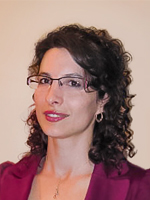
Eva Angelyna Bogdan
Research Associate
Eva Angelyna Bogdan had the opportunity to work with Tim Haney, PhD, and Caroline McDonald-Harker, PhD, on their research on the impact of 2013 Southern Alberta floods on families. She is a PhD student at the University of Alberta also researching flooding in High River with a focus on perceptions and practices of flood management to better understand decision-making, participatory processes, stakeholder interactions, and land use. This project is funded by SSHRC’s Canada Graduate Doctoral Scholarship.
Based on the findings of Eva's research, and PhD research of Stephanie Sodero at Memorial University, they designed the We’re Ready! Community Disaster Preparedness Pilot Project generously funded by CCDR. They worked with six community partners to further design and deliver the workshops with the goal of facilitating residents in creating their own customized community disaster plan, including hazard and evacuation maps, communication plans, and a community capacity inventory through fun and engaging community-building activities. Community involvement and collaboration are key because relationships are one of the most important levers of emergency preparedness. The workshops were a success and participants expressed interest in more of these workshops. They hope to expand the We're Ready! Program to other municipalities. More information available at http://www.wereready.org/.
Eva became interested in disasters while working on a ranch when the BSE (mad cow) crisis hit in 2003. Her Master’s thesis examined Canada’s BSE crisis and the extent to which it served as an opportunity for learning and changes at the individual and institutional levels.


